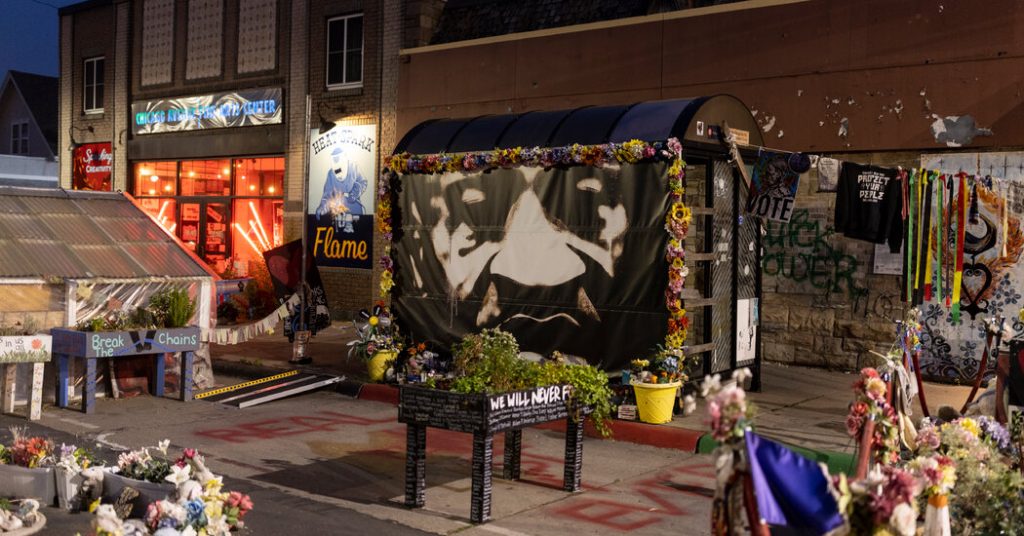The Minneapolis City Council has taken a decisive step towards police reform, unanimously approving a consent decree with the Department of Justice (DOJ) to address systemic abuses within the city’s police department. This landmark agreement, finalized just before the transition to a new presidential administration, mandates comprehensive changes to policing practices in the city where George Floyd was tragically killed by a police officer in 2020. The decree aims to establish greater accountability and transparency within the department, focusing on thorough investigations of misconduct allegations, stricter limitations on the use of force, and enhanced officer training. Mayor Jacob Frey hailed the agreement as reflective of community demands for meaningful change and genuine accountability within the police force.
This consent decree, a court-enforced agreement between the city and the DOJ, represents the culmination of a federal civil rights investigation into the Minneapolis Police Department. The investigation, initiated following George Floyd’s death, culminated in a 2023 DOJ report that exposed a pattern of discriminatory practices targeting Black and Native American residents. The report documented excessive use of force, violations of First Amendment rights of protesters and journalists, and a pervasive culture of impunity within the department. The city’s decision to enter into a consent decree preempts potential federal litigation and signifies a commitment to addressing the deep-seated issues plaguing its police force. The agreement will now be presented to a federal judge who will oversee its implementation and ensure the city adheres to the mandated reforms.
The timing of the agreement is significant, given the shifting political landscape and the historical context of federal oversight of police departments. The previous Trump administration actively discouraged the use of consent decrees, even opposing agreements in cities like Chicago and Baltimore. Former President Trump’s rhetoric emphasizing “extraordinarily rough” policing further underscored the administration’s stance against stringent federal oversight. The Minneapolis City Council’s proactive approach in reaching this agreement before the presidential transition signals a determination to pursue reform irrespective of potential shifts in federal policy. The city’s commitment is further reinforced by a separate agreement with the Minnesota Department of Human Rights, predating the DOJ report, which also calls for significant police reform.
Minneapolis has allocated substantial financial resources to support the implementation of these reforms. A total of $27 million has been earmarked in the city’s 2024 and 2025 budgets to fund the changes mandated by both the state and federal investigations. This investment reflects the city’s recognition of the financial implications of comprehensive police reform and its willingness to dedicate resources to achieve sustainable change. This financial commitment is in addition to the $27 million settlement paid to George Floyd’s family in 2021, acknowledging the devastating impact of police misconduct and the need for accountability.
The use of consent decrees as a tool for police reform has fluctuated under different presidential administrations. The Obama administration actively pursued consent decrees, entering into 15 agreements amid growing public outcry over police brutality and misconduct. This approach contrasted sharply with the Trump administration’s reluctance to utilize this tool, effectively halting new agreements and signaling a shift in federal policy towards police oversight. The Biden administration subsequently revived the use of consent decrees, launching numerous civil rights investigations into police departments across the country. However, the pace of these investigations and the implementation of resulting agreements has been slow, with only one new consent decree besides Minneapolis, in Louisville, Kentucky, finalized under the Biden administration.
The future of these ongoing investigations and the enforcement of existing consent decrees now faces uncertainty with the change in administration. Several cities under investigation, including Memphis and Phoenix, have resisted entering into oversight agreements, highlighting the challenges faced by the DOJ in implementing comprehensive reforms. The lengthy nature of these agreements, often spanning a decade, further underscores the long-term commitment required to achieve meaningful and sustainable change within police departments. The incoming administration will inherit these ongoing investigations and the responsibility of enforcing existing agreements, the future direction of which remains to be seen. The Minneapolis consent decree, secured just before the transition, stands as a testament to the city’s commitment to police reform and provides a potential roadmap for other cities grappling with similar challenges.


